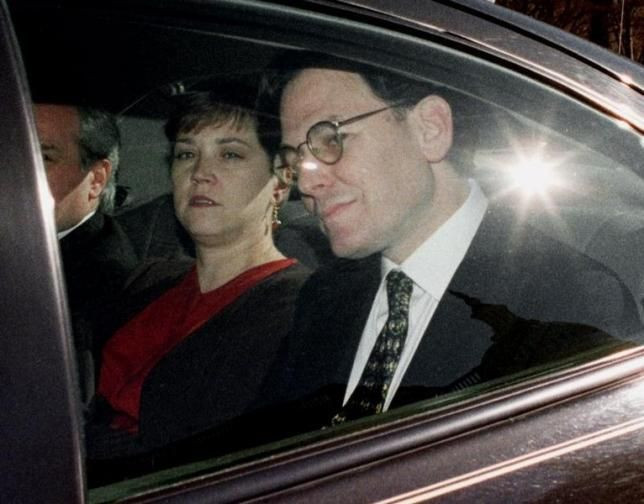Clinton Friend Blumenthal 'Shed No Light' Before Benghazi Panel

Sidney Blumenthal, a longtime ally of Hillary Clinton, testified all day Tuesday behind closed doors before a congressional panel probing the deadly 2012 attacks in Benghazi,Libya, but declared afterwards that he had "shed no light" on events there.
Blumenthal, who was an unofficial adviser to Clinton when she was U.S. Secretary of State, told reporters it seemed obvious the Republican-majority committee had subpoenaed him "for one reason and one reason only. And that reason is politics."
"My testimony has shed no light on the events of Benghazi, nor could it. Because I have no first-hand knowledge of what happened there," Blumenthal said after nearly nine hours of testimony in a basement room in the U.S. House of Representatives.
The panel's chairman, South Carolina Republican Trey Gowdy, said that Blumenthal answered questions in a "very civil atmosphere."
But Gowdy denied Democrats' accusations that Republicans are using the investigation to try and damage Clinton's 2016 presidential campaign.
"I fail to see how we're playing politics by talking to someone who sent a large number of memos to the top diplomat we had during the relevant time period," Gowdy said.
Blumenthal said the panel had spent hours asking him questions that had nothing to do with Benghazi. He said many related to politics as far back as the 2008 presidential primaries, when President Barack Obama beat Clinton for the Democratic nomination.
Blumenthal's emails to Clinton were among 850 pages of Clinton's messages related toLibya that the State Department released to the public last month.
Some contained information from a former CIA official, Tyler Drumheller. Blumenthal said on Tuesday that he had sent Clinton these reports because he thought they might be informative.
He said he had also testified to the Benghazi panel about a humanitarian assistance idea for medical care that "never got off the ground," an apparent reference to a proposed business venture in Libya. He also testified about his educational work with the Clinton Foundation.
Blumenthal gave nearly 60 new emails to the committee before his appearance, according to Gowdy, who said they were "eerily similar" to other emails from Blumenthal released by the State Department but added the committee "should have gotten this information sooner."
Blumenthal, who once worked as a senior adviser to former President Bill Clinton, has said he sent the emails to Hillary Clinton as a private citizen and friend.
© Copyright IBTimes 2024. All rights reserved.











